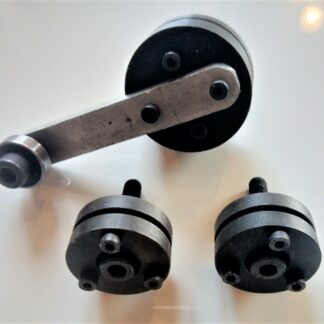Description
Titanal sheet for skis and snowboard.
Titanal T6 from AMAG.
spec sheet AMAG_SP_T_557266 Titanal Rev 01
Titanal sheet for use in layup.
It is usually used for bulking up a ride, for damping of vibrations and increased flexural and torsional stiffness.
Thickness is 0.4mm
Width is 310mm
Density 2840 kg/m3
Price is pr 10cm length, you get one piece when you order more.
It has to be cleaned up, just before lamination using denutered alcohol/ethanol, or possibly Aceton, then let it dry well. Please do this on your own responsibility, as any incorrect procedure can lead to delamination! Titanal is anodized with phosphoric acid.
Manufacturer suggests to sand the Titanal just before layup, but this might be bad idea as it will oxidize quickly, so if sanding, do it just before gluing. Testing is advised!
Be careful when using non symmetric layup, as titanal is temperature sensitive if you only use it on top or bottom you will get larger temperature sensitivity. Best to keep it closer to the core!
Dont flex the ski/snb untill the epoxy is fully cured!
Tip: Chances of delamination increases if you have titanal directly on smooth surface, like wood core or some plastic. It helps to have thin layer of fabric inbetween (like 1 oz glass or wide VDS).
Additional information for ski and snowboard manufacturers
General information
Anodising with phosphoric acid serves as a surface pre-treatment for permanent bonding and is employed successfully in the
aerospace and ski manufacturing industries. No demands can be made with regard to decorative appearance.
Phosphoric acid anodising layers are extremely thin and owing to their open-pore structure offer excellent bonding (epoxy and
phenol resin adhesives). They have no organic content, are environment-friendly and well-suited to storage.
Storage
Storage suitable for aluminium must take place using the appropriate caution in a dust-free and dry atmosphere at room
temperature. Prior to removing the goods from the packaging care should be taken that the ambient temperature has been
suitably adjusted. Attention is drawn to the danger of condensation when cold goods are brought into warm, damp rooms.
Condensation can cause surface discolouration and a deterioration in adhesive bonding. The surface can also be affected
negatively by storage lasting longer than six months.
Further processing
The extremely thin PSA-layers (≤ 0.1 μm) are sensitive to mechanical damage and the surfaces must be kept free from soiling,
especially in the form of dust, fingerprints (use clean leather gloves), grease and lubricants, as well as separating agents (silicone-
treated paper, form separating agents) and moisture. Problem-free copy milling and punching are both possible, but no lubricants
may be used. Forming can take place subject to adherence to these preconditions.
Behaviour under thermal loads
TITANAL® anodised with phosphoric acid can be bonded at standard temperatures (up to ~140°C). In the course of time higher
temperatures will result in losses of strength. Graphs concerning loss of adhesion can be provided. In the case of single-sided
lamination or paint coatings on the surface, the retention of bonding capacity on the exposed surface should be checked.




